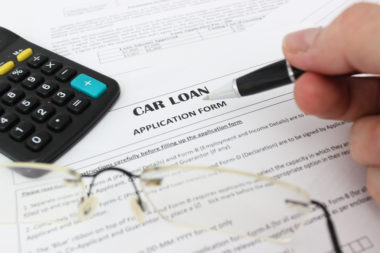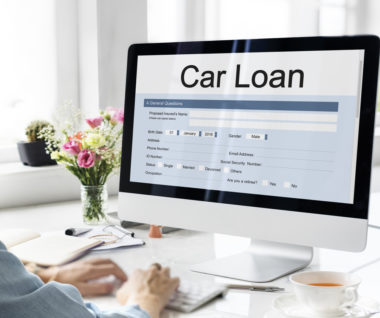Table of Contents
What Is an Extended Warranty?
An extended warranty is a warranty that only kicks in once the manufacturer’s warranty expires. It’s an additional cost, an added upgrade that you can choose while in a dealership’s financial office. Generally, you want to buy an extended warranty before the manufacturer’s warranty expires, as the price goes up otherwise.
Technically, an extended warranty is not actually a warranty, as Edmund’s points out. It’s more of an insurance policy for agreed-upon repairs, essentially a vehicle service contract. They are most commonly sold when someone purchases a used car from a dealership, instead of buying a new car or a used car from a private seller.
What Does an Extended Warranty Cover?
Extended warranties cover most major breakdowns. What that means, exactly, depends on your specific warranty. A “limited” warranty, also called bumper-to-bumper, covers nearly everything but the powertrain. This includes electrical systems, onboard computers, power steering wheels, built-in navigation systems, and other electronics. A powertrain warranty covers the engine and transmission systems.
How Does a Used Car Warranty Work?
There are two types of used car extended warranties: original equipment manufacturers, or OEMs, that are offered by the carmaker, and third-party warranties such as those offered by a specific dealership.
OEMs tend to cost more than third-party warranties, but are more like the original warranty that came with the car. They are essentially extensions of powertrain and limited warranties, but can also offer other benefits as an incentive, like roadside assistance. They can come with a deductible, like car insurance. Higher deductibles means a lower policy cost.
OEMs will be honored at any of the carmaker’s dealerships, such as a Ford or Toyota dealership.
Third-party warranties, on the other hand, might come with different rules. Certain repairs might be excluded from the contract, and aftermarket parts might be used in the repairs instead of parts from the original carmaker. Third-party warranties usually limit where the repairs can be done, such as the specific used car dealership you bought the car from. You might also have to pay out-of-pocket for repairs and request reimbursement later, which could take months after filing the initial claim. OEMs, on the other hand, require no further payment on your part, and dealership will work directly with the manufacturer, paying them directly.
Is an Extended Warranty Worth Buying for a Used Car?
Pros of Extended Warranties
- Warranties can be tailored to be specific to certain parts or sections of the car, such as covering a shorter-term limited warranty, just the powertrain, or in-car technology including the GPS or Bluetooth connection.
- Can include bonus incentives like roadside assistance
- For OEMs and dealership-backed warranties, it’s less paperwork getting the repairs completed than just going to a mechanic
- Can dramatically decrease the cost of major repairs
Cons of Extended Warranties
- Can be expensive
- May not cover all repairs, especially with third-party warranties
- Exclusion lists could be extensive
- Non-OEM warranties limit who can repair the vehicle
- It could be wasted money. Consumer Reports found that only half of extended warranties for vehicles from model year 2000 or later saw a claim filed in five years.
- Of those, about 30 percent of the claims were filed in the first year.
- Two-thirds filed a claim between 2 and 5 years.
- CR also found that 84 percent of extended warranty claims were actually honored.
- In 2013, Edmunds noted that some third-party warranties were little more than scams, cautioning consumers to carefully read contracts. OEMs tended to be much more reliable than third-party warranties.
Taking these pros and cons into account, is it worth it? Maybe. It’s very similar to buying health insurance; you might need it, or it could just be wasted money. Even if it is used, it could still be a waste, as a study found that extended warranty plans cost an average of $1,214, but only saved $837 on repairs. As it is, if the used car is still fairly new, the original manufacturer’s warranty could still be in effect.
If you have a personal history of needed repairs, it might be worth the peace of mind. If you are not expecting to keep the car more than a couple years, however, the peace of mind might not be worth that much.
Financial expert Dave Ramsey simply says they are not worth it. He says they are overpriced, and the risk vs. reward is skewed against the consumer. Half of the money, he noted, goes towards the salesman’s commission instead of the actual warranty, as well. It’s also a way for the dealership to get more money, as they are likely losing money on new cars, and need a way to make up the loss.
Alternatives to the Extended Warranty
There are a few alternate methods for dealing with repairs on used cars that do not involve getting an extended warranty. You can put away money as an emergency repair fund. You can open a savings account for repairs and maintenance of your car. If you don’t need to use the money for repairs, it can be put towards buying another car as a down payment.
Keeping to the manufacturer’s maintenance schedule, which should be in your owner’s manual, can also help keep the car in running condition. If you do open a car savings fund, this can help avoid needing to dip into it.
Finally, the easiest way to avoid needing a warranty is choosing a car with a proven repair record. It’s an old joke that Alfa Romeos leak oil like it’s an intended feature. If something like this is the case with the make and model you are looking at buying, consider a car that isn’t known for needing frequent repairs.
Chances are, for the majority of used car buyers, the risk vs. reward means it won’t be worth it to buy an extended warranty. However, if you are buying a car with a spotty repair record, a short manufacturer’s warranty, or you are looking for extra peace of mind, it might be worth it. OEM warranties are your best bet, but are also the most expensive.
Image Source: https://depositphotos.com/





